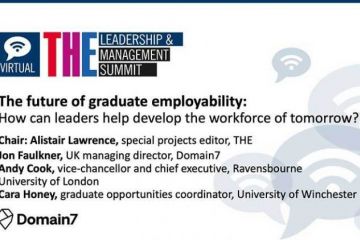Political science is falling victim to its practitioners' reluctance to compete for grants, according to a leading official of the Economic and Social Research Council.
The Political Science Association raised its long-standing grievance over the poor success rate of political science applicants for postgraduate studentships at a recent meeting with Ron Amann, ESRC chief executive.
Ian Forbes, professor of politics at Nottingham University and newly-elected chair of the PSA, told the council: "We are very worried about the disparity between the treatment of A-rated postgraduate studentship applicants from politics, and those in other subjects. A lower proportion of our A-rated applicants win awards than those from other subjects, and this has now happened for a number of years."
But Professor Amann denied that political scientists were losing out. "Decisions are made by our research training board, which is made up of distinguished academics, and politics fares no worse than other major subjects - if anything the squeeze is greater on sociology," he said.
He said that politics had received 42 awards in the 1995 competition, compared to exactly the same number for psychology and geography and 43 for economics. Eighty per cent of the 363 awards are awarded to a particular subject, with the remainder pooled for open competition across the range of social sciences. "The differences the PSA are complaining about are a matter of two or three awards at most," he said.
Professor Amann argued that politics is instead losing out by generating relatively few applicants for ESRC's responsive-mode research grant competition. "This competition produces substantial awards for significant research projects," he said.
In 1994/95 there were only 58 political science applications, against 129 from sociology and 128 from psychology. Of these 16 politics applicants were successful, against 26 sociologist and psychologists. Professor Amann said that it was not ESRC's job to drum up applicants for grants, but that he hoped to see more politics applicants in the future.
Professor Forbes countered that the low applications level might reflect a lack of confidence in ESRC among political scientists.
Register to continue
Why register?
- Registration is free and only takes a moment
- Once registered, you can read 3 articles a month
- Sign up for our newsletter
Subscribe
Or subscribe for unlimited access to:
- Unlimited access to news, views, insights & reviews
- Digital editions
- Digital access to THE’s university and college rankings analysis
Already registered or a current subscriber?








